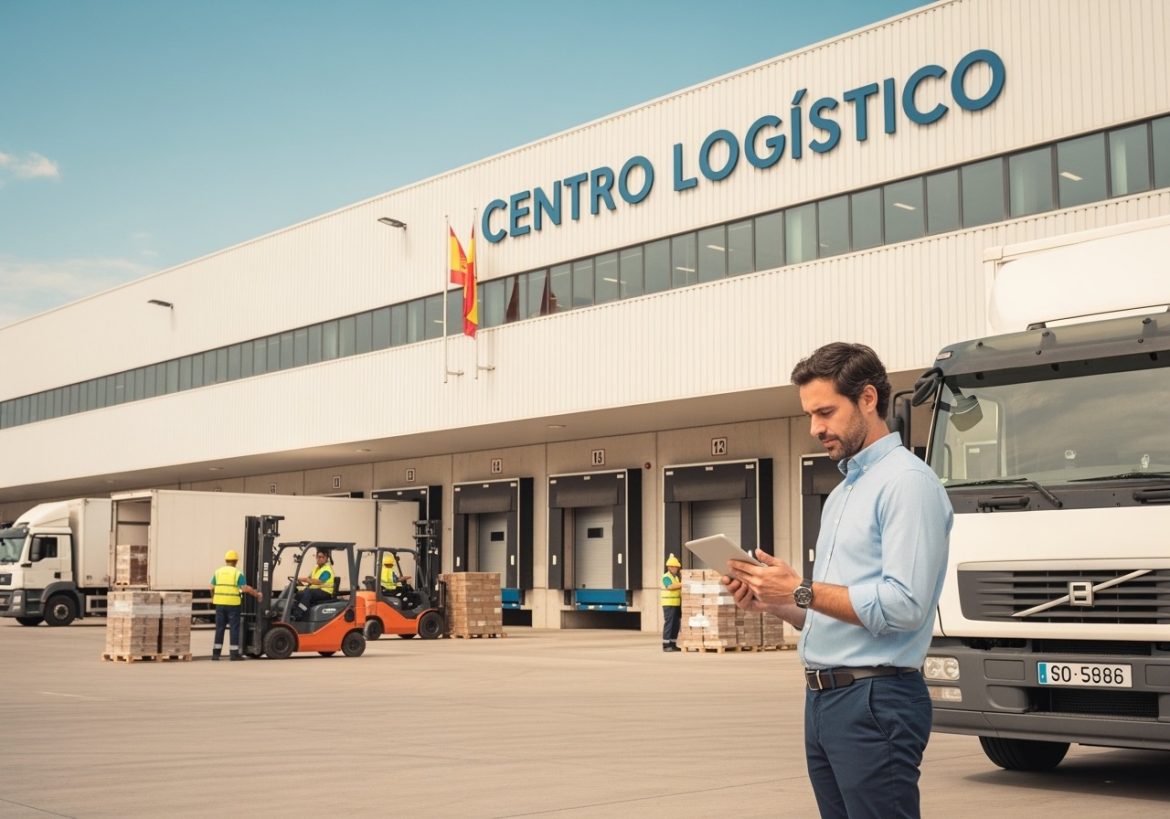Logistics is the nervous system of the economy moderna. In Spain, this sector moves more than 8% of GDP and employs about a million people, but it faces critical challenges that require a reinvention urgent. From the scarcity of carriers until the rise of e-commerce, through the EU environmental requirements, companies must adapt or be left out of the game.
We must, logistics is the process of planning, implementing and controlling the flow and storage efficient and effective raw materials, semi finished products and finished, as well as related information, from point of origin to point of consumption, with the purpose to satisfy customer requirements.
In other words, is the science and art of wearing the right product, in the right quantity, in the right conditions, the right place, at the right time and at the correct cost, those are its pillars.
One of the biggest challenges in Spain to operate the logistics is the lack of technology integration. The connoisseurs say that while giants such as Amazon and Inditex operate with algorithms of last generation, many smes still rely on spreadsheets and phone calls to manage shipments. This digital divide creates inefficiencies that increase costs and slow down the supply chain. Platforms such as TMS (Transport Management Systems) or tools of tracking in real time is no longer a luxury, but a necessity to compete. However, its adoption remains uneven, especially among the self-employed and small fleets.
For the logistics function as a watch must meet key operations managed several key operations: how to get raw material or products needed, move those products by different types of transport have in warehouses the products safe and organized, with a good inventory, and come with the product to the customer or point of sale.
It is also imperative to receive, prepare and dispatch the orders in an agile manner, protect the goods and to optimize its management, as well as to use systems to track and coordinate the whole process in real time.
The human factor is another issue to bear in mind, then Spain has a substantial deficit of professional drivers, according to outline the majority of the publications, it exacerbated by the aging of the working population and the lack of generational change.
In addition to this, the characteristics of the industry with long hours, stagnant wages and working conditions that discourage young people. Initiatives such as the reduction of the retirement age for carriers or tax credits for hiring are steps in the right direction, but insufficient, to indicate some of the scholars of the topic and propose campaigns, training and recruitment to modernize the image of the trade and linking to the technological innovation.
In parallel, the logistics green has become an imperative. The european standard requires a reduction in emissions, and cities such as Madrid or Barcelona now restrict access to vehicles contaminants. Companies such as Emails or DHL are responding with fleets of electric and alternative fuels, but the transition is slow for the high initial costs.
Something today is the rise of e-commerce has led to a rise in deliveries in the city. Theme of individual study due to its high impact.
It also has to take into account the logistics of collaboration that emerges as a winning formula for the sharing of trucks, warehouses, or routes, which not only reduces costs, but also to optimize scarce resources. What is certain is that there is a need to avoid empty trips. And although many traditional operators still distrust of these modern models for fear of losing control, the mentality has to change, as is today a global market, where the cooperation is the only way to survive.
Entities such as Powerload.it is already in that market, with an excellent proposal to alternate with the more established of the sector, because it has that security that you are looking for, technology and knowledge.
Logistics is the backbone of the supply chain. It is what makes it possible for you to buy a product in a store or online and receive them at your home quickly and efficiently. Without it, global trade simply wouldn’t work.
Have any thoughts?
Share your reaction or leave a quick response — we’d love to hear what you think!





